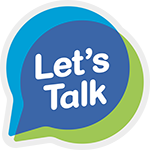
Gloucestershire Talking Therapies
This website is no longer up to date.
Please visit www.ghc.nhs.uk/talkingtherapies.
If you have any questions, please call us on 0800 073 2200.

This website is no longer up to date.
Please visit www.ghc.nhs.uk/talkingtherapies.
If you have any questions, please call us on 0800 073 2200.